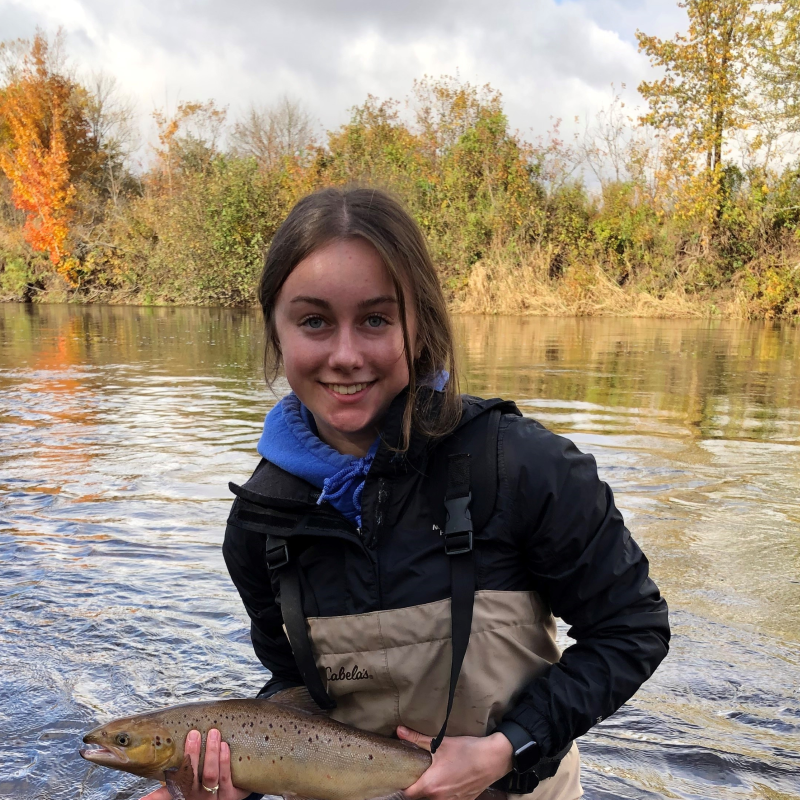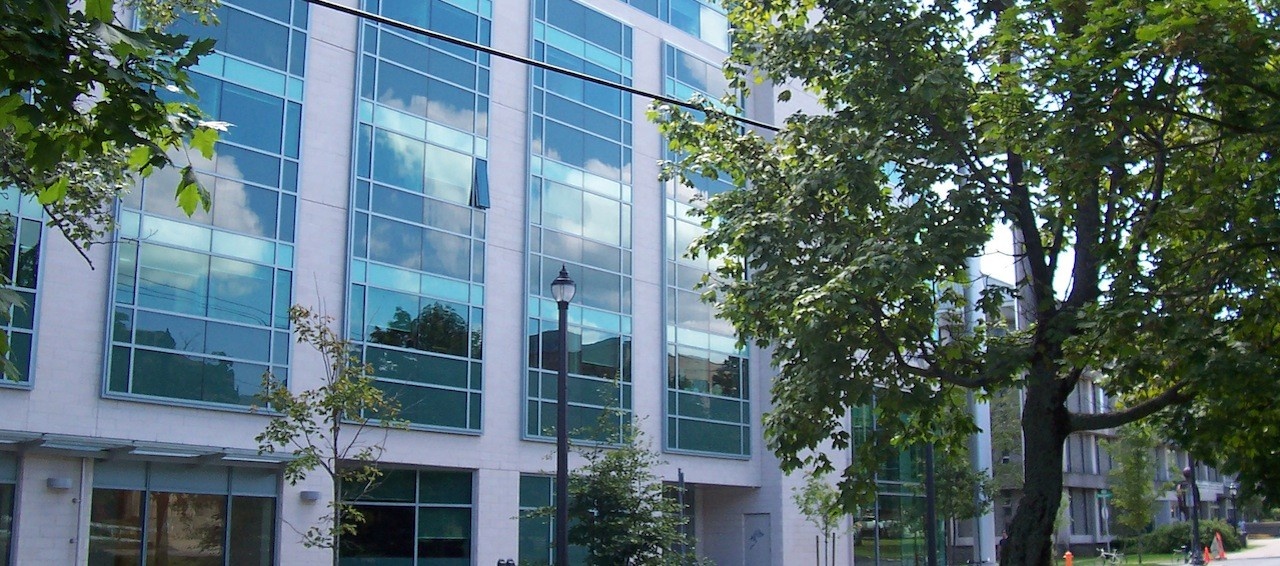Sophie Newcombe
 |
Program:Graduated from MREM in May 2024 Current position:Species-at-Risk Biologist with Fisheries and Oceans Canada |
From Classroom to Career: How SRES Shapes the Day-to-Day of an Environmental Studies Graduate
Transitioning from an academic program to a professional role can be both challenging and rewarding. For Sophi Newcombe, a recent graduate from the Master of Resource and Environmental Management (MREM) program at the School for Resource and Environmental Studies (SRES), this journey has been marked by significant learning and impactful contributions to environmental conservation. Now working as a Species-at-Risk Biologist with Fisheries and Oceans Canada, Sophi’s daily work is a testament to her comprehensive and practical education at SRES.
Sophi’s path to SRES began after completing her undergraduate degree in biology at St. Mary’s University. Uncertain of her next steps, she took a year off and conducted informational interviews with professionals in the field. One such professional recommended the MREM program at SRES, highlighting its comprehensive coursework and practical approach. Sophi was particularly drawn to the program’s high employment rate for graduates and the opportunity to remain in Nova Scotia.
"I didn't want to write a thesis as I desired more experience with report writing instead, and the MREM program was all course-based, which was perfect for me," Sophi explained. The decision to join SRES was influenced by her desire for a program that offered practical experience and a strong track record of graduate employment, which she found essential after struggling to find a job post-undergrad. The MREM program’s emphasis on practical experience was instrumental in preparing Sophi for her current role. During her time at SRES, Sophi focused several of her major projects on the Species at Risk Act and the conservation of Atlantic salmon. This focus not only deepened her understanding of the Act but also gave her valuable insights into species conservation's complexities.
“I based a few of my projects on the Species at Risk Act. Some of them were critiques of the Act, which is fine—it has its faults, all Acts do. But I already had a good understanding of the policy because of those projects,” Sophi noted. This foundation proved crucial when she transitioned into her current role, where she works on recovery planning for endangered species like Atlantic salmon in the inner Bay of Fundy.
The interdisciplinary approach of SRES also broadened Sophi’s perspective on environmental issues. The program’s tri-course structure, which includes law, biophysical, and socio-political courses, helped her appreciate the multifaceted nature of environmental management. “I was already really interested in the biophysical aspect of things, but then taking the law course and the socio-political course, I realized how important these other perspectives are,” Sophi remarked.
One of the most significant advantages of the MREM program is its internship component, which facilitates a smooth transition from academia to the workforce. Sophi secured her internship with Fisheries and Oceans Canada through a unique pool application process, where her information was recorded and entered into a candidate pool for potential employers to review. This internship was essentially a precursor to her current full-time role, providing her with a seamless transition into her professional career. “The internship definitely helps. It can be difficult to get that initial experience but once you have your foot in the door things begin to run more smoothly. Whenever I chat with undergraduate students, I always emphasize the importance of gaining experience in whatever way you can whether that be through a job, volunteering, or a field course”,” Sophi advised . This practical experience, combined with the academic rigour of the MREM program, equipped Sophi with the skills and confidence needed to excel in her role.
Sophi’s work at Fisheries and Oceans Canada directly addresses critical environmental challenges, highlighting the importance of her SRES training. In her role, Sophi supports the Senior Biologist with recovery planning for the inner Bay of Fundy Atlantic salmon population, specifically working on development of recovery documents, such as the Recovery Strategy and Action Plan, as well as reviewing funding proposals and Species at Risk Act permitting applications. In addition, Sophi has recently volunteered to co-lead a national working group to support Indigenous engagement within the Species at Risk Program. Finally, Sophi sits on a number of internal and external to Fisheries and Oceans Canada working groups, representing the Maritimes Region Species At Risk Program and has been involved in a number of education and outreach activities, including teaching the next generation of conservationists through a Fisheries and Oceans Canada youth internship program about Atlantic salmon.
Reflecting on her time at SRES, Sophi emphasized the program’s role in broadening her environmental perspective and providing her with the tools necessary for effective environmental management. “Even though I was focused on aquatic conservation, I learned about it in ways I wouldn’t have in a job. Every project allowed me to explore different aspects of environmental management,” she said.
Sophi’s journey from SRES to her current role demonstrates the program’s effectiveness in preparing graduates for the complexities of environmental work. For those considering a career in environmental studies, her experience underscores the value of a comprehensive, interdisciplinary education combined with practical, real-world experience.
In summary, SRES has been pivotal in shaping Sophi Newcombe's professional journey, providing her with the knowledge, skills, and opportunities to make a significant impact in the field of environmental conservation.
For More reading about the Species at Risk Act: https://www.canada.ca/en/environment-climate-change/services/environmental-enforcement/acts-regulations/about-species-at-risk-act.html
